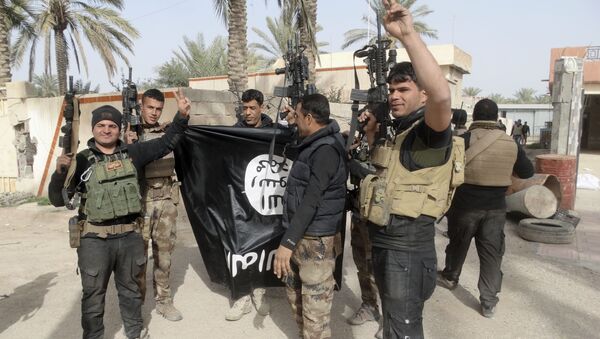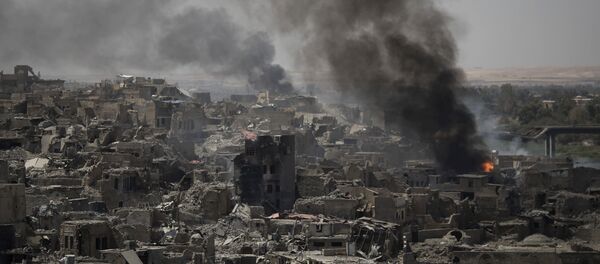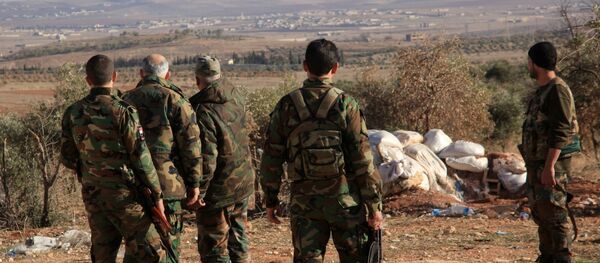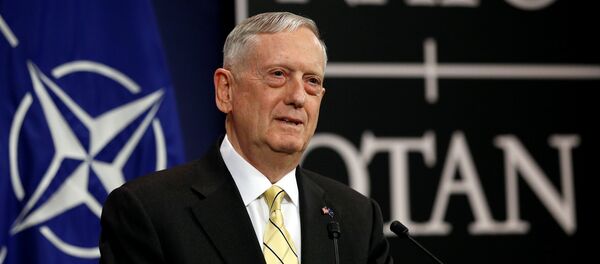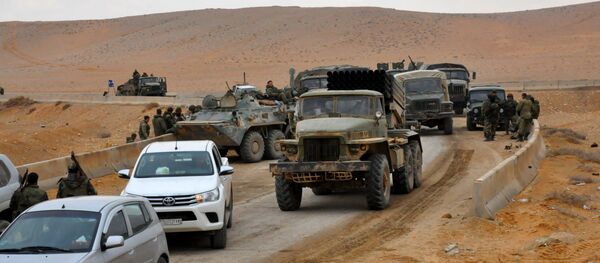IRAQI-SYRIAN BORDER (Sputnik) — "The calm before the storm" — this is how Iraqi militiaman Ali described the situation in the country's region of Tal Safuk on the border with Syria, or rather in its part that is still under the control of Daesh, a terrorist group banned in Russia and many countries worldwide.
Sputnik Arab desk's correspondent Sara Nureddin visited Tal Safuk, where she prepared this material.
BORDERING TERROR
Ali for hours gazes into the distance through the sight of the Kornet anti-tank missile system and sees dozens of Syrian villages the other side of the border, where the armed Daesh militants are still moving under the scorching sun, and black extremist flags are waving on the houses.
From there, the extremists are sending reinforcements to the Syrian region of Deir ez-Zor, where they lately have been heavily pressured by both government forces and the so-called Syrian Democratic Forces — the US-backed most efficient Kurdish militias.
SLEEPER CELLS
One mistake of our driver, and we are lost in a dangerous area between the settlements of al-Ba'aj and al-Qairawan. It is believed that the retreating Daesh left the so-called sleeper cells here. The slogans written on the walls of the houses leave no doubt that the extremists were ruling here very recently.
The Iraqi people's militia continues to sweep the road leading to the Syrian border. Fellow journalists told that in the recent days militiamen had managed to kill three high-ranked Daesh members: Abu Iman, who directed the so-called Daesh in Tal Afar, Abu Abd Zuaizeia, who was responsible for the recruitment of suicide bombers, and Naser al-Badrani, who planned the activity of Daesh underground cells.
RESISTANCE ARMY
Under the echoes of the artillery salvo, we arrived at the headquarters of the Al Tafuf Brigades from the militia for an interview with the deputy commander of the border area of Iraq, Seyyid Ahmed Nasrullah.
Our interlocutor just returned from the border where the next attack of Daesh militants took place. He said that the militia had come to liberate the border of Iraq from terrorists, responding to the call of the spiritual leader of the Shiites of Iraq, Ayatollah Ali al-Sistani. "In this region, the border with Syria is 68 kilometers [42 miles] long, there are six brigades here," Nasrullah said.
If necessary, the people's militia brings food from other cities or delivers local residents there, as it is simply impossible to buy anything in this area.
LIFE AT BORDER
On the border, not a single day passes calmly, Nasrullah pointed out. Militants from Syria are constantly attacking border militia posts and manage to inflict damage in manpower and equipment, despite all the defenses. "Attempts to break the border, destroy security structures occur daily, Daesh is trying to evacuate its leaders and militants with families who are stuck in the liberated Mosul," the deputy commander said.
In addition, with the help of continuing attacks, Daesh seeks to prevent militias from organizing reliable border protection throughout its entire length. Some terrorists shaved off their beards and are trying to leave Iraqi territory together with the refugees, claiming to be civilians.
WAR IS CLOSE
But the locals cannot return to normal peaceful life yet, since the war is still very close. This is also reminded by the constant ruptures of shells somewhere very near, and the frames of destroyed equipment, ruined houses, weapons and ammunition thrown by the militants. Very fresh memories of the years spent under the absolute power of extremists, forcing their vision of life within the "Islamic Caliphate." It is just a border strip protected not by professional military but by militiamen coming from other regions of the country that separates them from the Daesh horrors in neighboring Syria.

